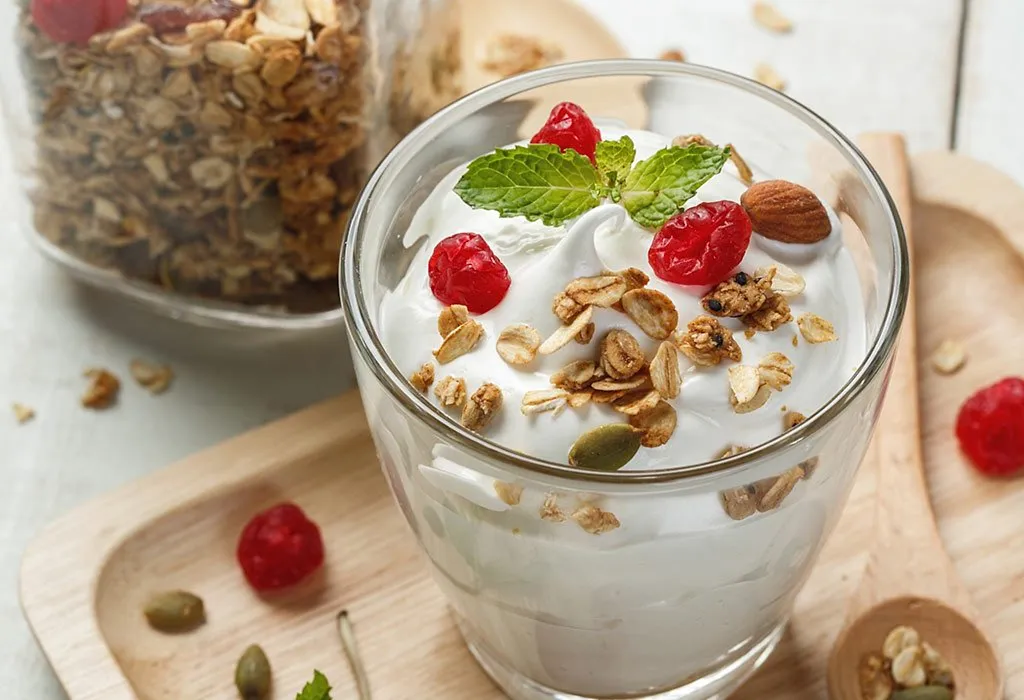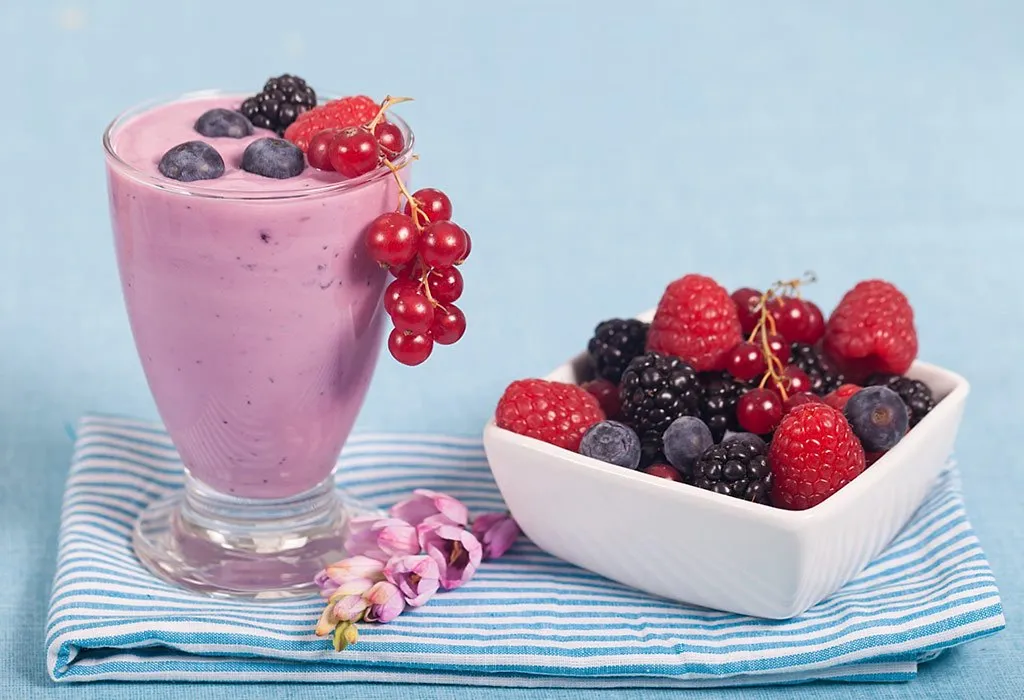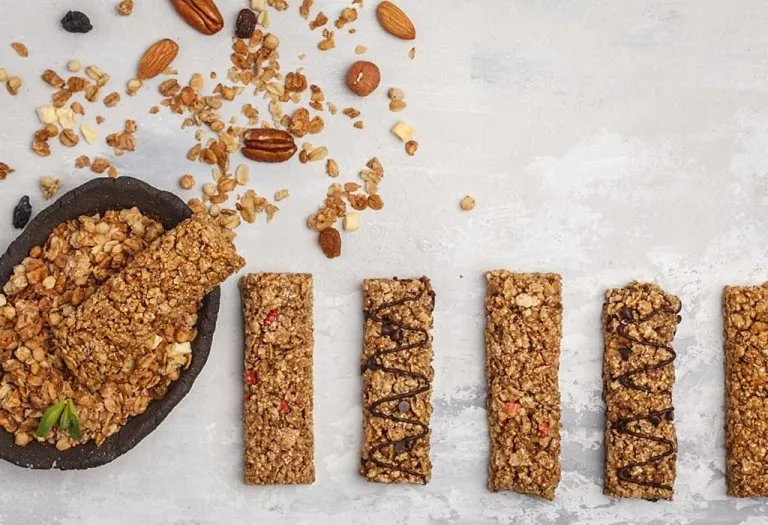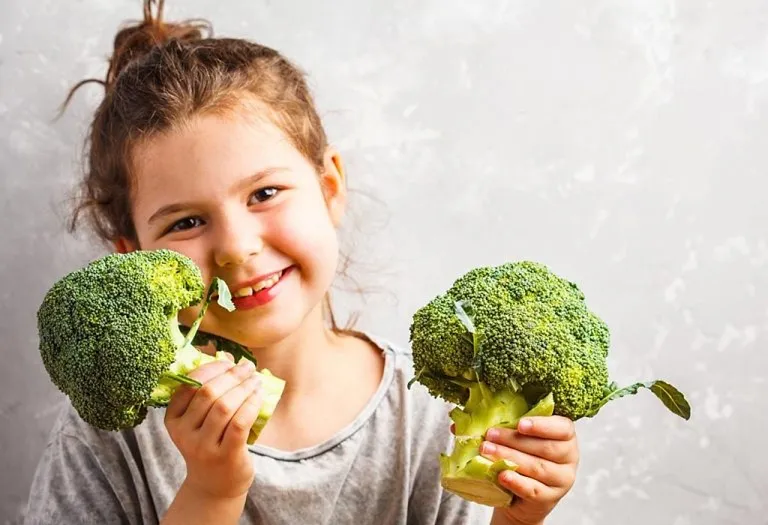Yogurt for Kids – Benefits, Risks and Recipes

Yogurt is a healthy and tasty food, that is also very filling. As a parent, you must be looking to introduce this tasty food in your child’s diet, especially when it is available in so many delicious flavors. Yogurt for kids can be an excellent choice due to its nutritional benefits. Today, yogurt or frozen yogurt is available in many different flavors, and children love eating yogurt, but is it good for them? Let’s find out! The various options in the market cater to different tastes and preferences, making it easier for parents to find something their children will enjoy.
Is Yogurt Good for Children?
Yogurt is extremely healthy in its constitution and is highly recommended for children. Most kids will crinkle their nose when you term any food as healthy because they tend to look at it as an act of manipulation in getting them to eat something they don’t like. But yogurt is an exception to this since not only kids love it, but they would also enjoy the various flavours that can be integrated with it.
What Are the Different Types of Yogurt for Kids?
Yogurt is available in various forms, each offering unique benefits that cater to children’s nutritional needs and preferences. Here are some popular types of yogurt for kids:
1. Plain Yogurt
Plain yogurt, made from cow’s milk, contains active live cultures. These cultures convert lactose into lactic acid, thickening the milk and giving it a tangy flavor. Plain yogurt is available in many varieties, including regular and Greek.
2. Yogurt with Mix-Ins
This type of yogurt comes with mix-ins like sprinkles, graham crackers, nuts, granola, chocolate candies, or cookie pieces. These are packaged separately and intended to be mixed into the yogurt. While fun, the added mix-ins significantly increase the sugar content, making the yogurt more like a dessert.
3. Flavored Yogurt
Flavored yogurt starts with plain yogurt and adds flavors and often sugar. These yogurts are usually blended for a smooth consistency, eliminating chunks or seeds. Fruited yogurt includes fruit puree at the bottom, meant to be stirred into the yogurt. However, these can be quite sweet, and children might find it difficult to mix the fruit in properly, which can affect their enjoyment.
4. Dairy-Free Yogurt
Dairy-free yogurts are available in oat, soy, coconut, and almond-based varieties. These yogurts have a different nutritional profile compared to dairy yogurts and may not be the best for optimizing nutrient intake in children. They are often lower in protein and fat but are fortified with nutrients like calcium and vitamin D. They also contain thickeners to replicate the texture of dairy yogurt and may have added sugars or sweeteners. Fortified soy-based yogurt is nutritionally closest to dairy yogurt, while coconut and almond varieties are lower in protein.
5. Frozen Yogurt
Frozen yogurt includes added sugar, flavors, and other ingredients to achieve a consistency similar to frozen dessert. It primarily contains milk, yogurt cultures, and sugar, but often offers only a small percentage of the daily calcium requirement. The fat and calorie content can vary based on the milk used, with whole milk versions having more than non-fat ones. Additional toppings can further increase the calorie, fat, and sugar content. It’s important to note that frozen yogurt is not the same as yogurt that has been frozen and is not necessarily a healthier alternative to ice cream.
What Are the Benefits of Eating Yogurt for Kids?
There are a variety of benefits that yogurt can offer to children, right from nutrition to protection for children and adults as well.
1. It Is a Rich Source of Calcium
Milk is usually considered essential for kids primarily due to it being a great source of calcium. But not all kids accept milk readily and calcium is not readily available in many other food items. Yogurt is known to have a substantially higher concentration of calcium, that’s even greater than milk. A simple small cup of yogurt can provide nearly 450mg of calcium to a child, directly impacting the bone development and making them stronger.
2. It Provides Good Probiotics
Milk is converted to yogurt through bacterial activity, which leads to it storing a number of probiotic bacteria inside it. Kids having yogurt regularly tend to have their gut replenished with the good bacteria, keeping their health strong and digestive processes streamlined.
3. It Is a Good Source of Energy
Yogurt is a rich source of protein. It can provide your child with the energy he needs for the day. A small amount of yogurt during school can give him a boost for the day.
4. It Helps in Weight Management
Gorging on junk food or having poor eating habits is what has resulted in childhood obesity becoming a pertinent problem for today’s generation. In order to prevent your child from getting obese and suffering from various health issues later in life, you can include yogurt in his diet. Consuming yogurt in good quantities helps kids feel fuller sooner than usual. This helps them restrict their consumption of excessive food while getting the energy they need to get through the day.
5. It Can Be Used in Various Dish Preparations
If your kids don’t like eating yogurt in the form that it usually is, no issues. The ability of yogurt to blend itself with almost any dish makes it extremely versatile to be used in multiple cuisines. Be it salad dips, fruit shakes, or the creamy-frozen variant of yogurt in the right flavour, your kids will find themselves diving into it and getting the amount of yogurt nutrition they deserve.
Are There Any Risks of Consuming Yogurt?
With all these benefits that yogurt brings, it still isn’t the white knighted saviour we might think it to be. There are certain side effects and disadvantages that kids might face on consuming yogurt, maybe in a different form or if they have a certain health condition.
- Commercial yogurt is not necessarily low in fat or calories. The usual ones have high quantities of them both, which might facilitate weight gain instead of reducing it. This will further aggravate obesity in a child and lead to further health conditions as he grows up. For a kid who is already battling with such phenomena or on a general basis, it is best to go for the non-fatty yogurts that can provide nutrition without the excess fat and calories.
- Lactose intolerance is a major problem that creates a ton of issues and diet restrictions for kids, especially when they are young. This condition makes it difficult for kids to synthesize lactose in their body, making it necessary to eliminate its consumption altogether, which includes yogurt, too. Yogurt made from goat milk or soy milk could be alternatives that might work for the child.
- Commercially available yogurts are not free of sugar and they do contain some amount of it for sure. Eating a lot of yogurts can ramp up the sugar consumption in your child before you know it, leading to health issues developing within him. If your child is a huge fan of yogurt, opt for low-sugar variants so he can have his fill without any problems.
- There are chances that the yogurt you consume could have traces of a growth hormone. This is usually a hormone that is artificially injected in cattle, to help them grow speedily and produce more milk. Most brands do use milk from hormone-free cattle, making their yogurt a safer option. However, if that isn’t the case, consuming such yogurt could result in complications for some children, such as the onset of puberty way before the usual age, increase in the risk of cancer, and many other complications.
Healthy and Delicious Yogurt Recipes for Kids
For kids that love eating yogurt, there are tons of recipes that can be used to make yogurt snacks for kids to be enjoyed at any point in time.
1. Fruit Smoothie With Yogurt
Make a quick accompaniment for the evening snack that is soothing and full of nutrients with this yogurt smoothie for kids.
What You Will Need
- Yogurt
- Frozen strawberries
- Orange juice
- Bananas
How to Make It
- Take the blender container and add the fruits and orange juice to it. Blend it together until it turns into a puree.
- Add yogurt to it and blend it until it smoothens nicely.
2. Frozen Yogurt With Strawberries
You need not rush to your nearest store to get frozen yogurt. Make this one right in your home and let your child marvel at your culinary skills.
What You Will Need
- Yogurt
- Strawberries
- Honey
- Lemon juice
- Vanilla
How to Make It
- Take a bowl and mix together all the ingredients, save for the strawberries, together.
- Add sugar or any other sweetener if your little one has a sweet tooth.
- Freeze a bowl and then add this mixture to it. Garnish it with strawberries, some whole, some chopped.
- Place this in the freezer for a couple of hours or more and then serve.
3. Yogurt Pancakes
A beautiful way of making a delicious breakfast that is high in nutrition and lip-smacking in its taste.
What You Will Need
- Blueberries
- Maida
- Baking powder
- Cinnamon
- Vanilla
- Egg, beaten
- Yogurt
- Milk
- Salt
How to Make It
- Take a bowl and mix maida, baking powder, salt and cinnamon in it.
- In another bowl, mix together vanilla, egg, and yogurt.
- On a hot pan, add butter and pour the first batter on it to make pancakes. Let each side cook for about 3-4 minutes.
- Once all pancakes are prepared, top it off with yogurt and a drizzle of honey and let your child devour it.
FAQs
1. Can yogurt help with lactose intolerance in children?
Yes, yogurt can be beneficial for children with lactose intolerance. The live cultures in yogurt help break down lactose, making it easier to digest compared to other dairy products. Additionally, the fermentation process reduces the lactose content in yogurt, which can help children with mild lactose intolerance enjoy dairy without discomfort.
2. Is it safe to give yogurt to infants under one year old?
It is generally safe to introduce yogurt to infants around six months of age, once they have started eating solid foods. Plain, whole-milk yogurt is recommended as it provides essential fats and nutrients needed for growth. However, it is important to avoid yogurts with added sugars and artificial ingredients for infants.
3. How can yogurt affect dental health in kids?
While yogurt can be a nutritious snack, it is important to choose varieties with low or no added sugars to protect dental health. Sugary yogurts can contribute to tooth decay, especially if consumed frequently. Encouraging children to drink water after eating yogurt can help rinse away any residual sugars and acids, promoting better dental hygiene.
Healthy yogurt for kids is a good option for first foods. Yogurt has always been termed as a healthy food item due to its various benefits. Certain precautions around its consumption are however necessary for kids, especially if there exist certain health conditions. By opting for the right alternatives and making yummy recipes from it, your kid can get the best out of it and stay healthy without any trouble.
References/Resources:
1. Dissanayake. D, Ruwanmali. J, Munasinghe. M; The evolution, processing, varieties and health benefits of yogurt; ResearchGate; https://www.researchgate.net/publication/264004596_The_evolution_processing_varieties_and_health_benefits_of_yogurt; April 2014
2. Freitas. M; Chapter 24 – The Benefits of Yogurt, Cultures, and Fermentation; The Microbiota in Gastrointestinal Pathophysiology; Science Direct; https://www.sciencedirect.com/science/article/abs/pii/B9780128040249000240
3. Hadjimbei. E, Botsaris. G, Chrysostomou. S; Beneficial Effects of Yogurts and Probiotic Fermented Milks and Their Functional Food Potential (Foods); National Library of Medicine; https://www.ncbi.nlm.nih.gov/pmc/articles/PMC9455928/; September 2022
4. Yogurt; Harvard T.H. Chan; https://nutritionsource.hsph.harvard.edu/food-features/yogurt/
5. Fernandez. M, Fisberg. M, Marette. A; Role of Yogurt in the Nutrition and Health of Children and Adolescents; ResearchGate; https://www.researchgate.net/publication/317336411_Role_of_Yogurt_in_the_Nutrition_and_Health_of_Children_and_Adolescents; December 2017
6. Yogurt, low fat milk, plain; Food Data Central; U.S. Department of Agriculture; https://fdc.nal.usda.gov/fdc-app.html#/food-details/1097559/nutrients
7. Lactose Intolerance; Cedars Sinai; https://www.cedars-sinai.org/health-library/diseases-and-conditions/l/lactose-intolerance.html
Also Read:
Sushi for Kids
Smoothies for Kids
Gummy Vitamins for Children
Is Kombucha Drink Safe for Kids?
Was This Article Helpful?
Parenting is a huge responsibility, for you as a caregiver, but also for us as a parenting content platform. We understand that and take our responsibility of creating credible content seriously. FirstCry Parenting articles are written and published only after extensive research using factually sound references to deliver quality content that is accurate, validated by experts, and completely reliable. To understand how we go about creating content that is credible, read our editorial policy here.




























